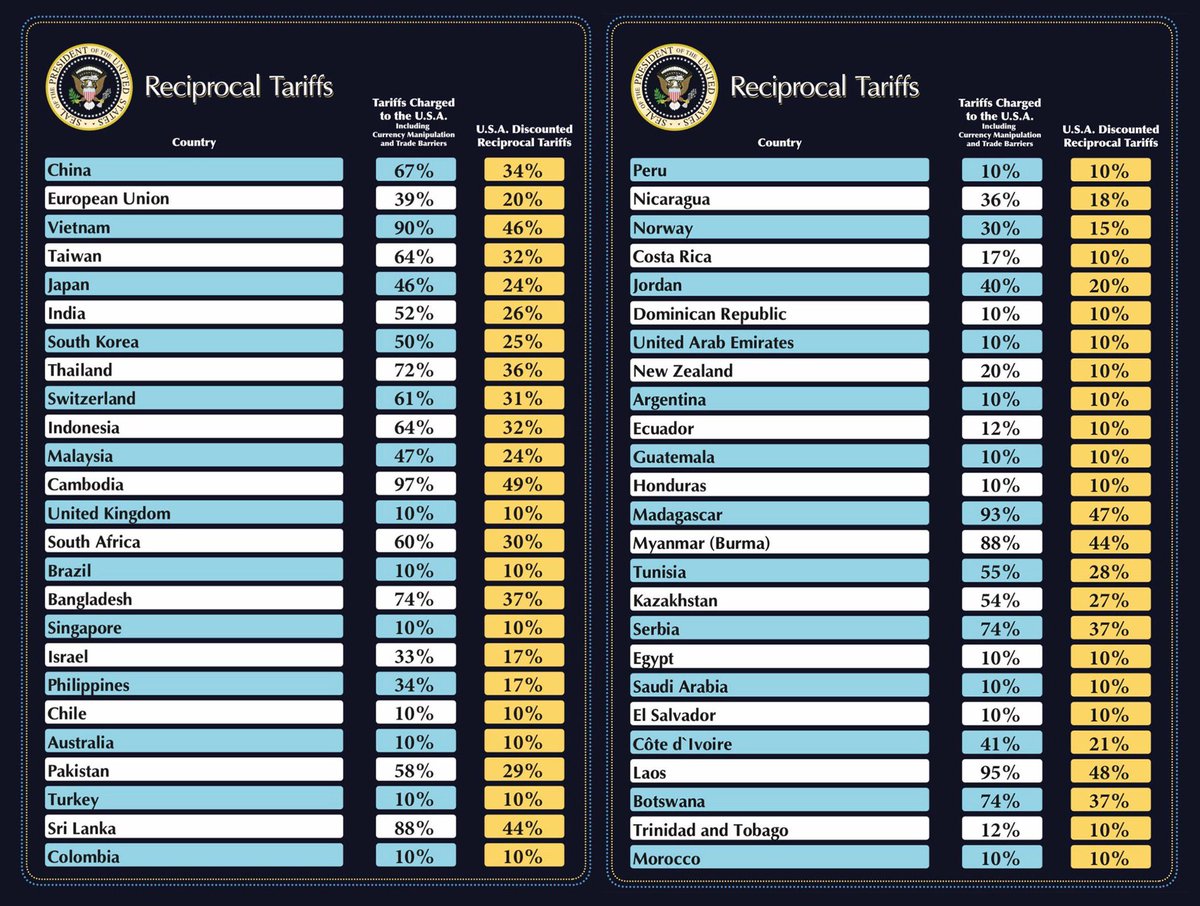We got nothing.
In the trade 'deal' with China, the US got nothing.
We're mostly back to where we were before the global trade war started—before Donald Trump started the global trade war.
The Chinese conceded nothing.
Indeed, from the outside, China won this round.
—>
In the trade 'deal' with China, the US got nothing.
We're mostly back to where we were before the global trade war started—before Donald Trump started the global trade war.
The Chinese conceded nothing.
Indeed, from the outside, China won this round.
—>
2/ An economist from Hong Kong explains:
'From China’s perspective, the outcome of this meeting is a success, as China took a tough stance on the US threat of high tariffs & eventually managed to get the tariffs down significantly without making concessions.'
The chaos…
—>
'From China’s perspective, the outcome of this meeting is a success, as China took a tough stance on the US threat of high tariffs & eventually managed to get the tariffs down significantly without making concessions.'
The chaos…
—>
3/ …The chaos for American business these last 5 weeks has been incredibly costly—financially, psychologically, in terms of planning, morale, a sense of predictability about the future.
And it has been costly in China as well.
Millions of dollars in wasted…
—>
And it has been costly in China as well.
Millions of dollars in wasted…
—>
4/ What has been the point of this effort—this exercise in bluster & muscle flexing—to justify that expenditure of money, talent, simple worry & anxiety?
Just a reminder that Trump—personally—flourishes in the chaos.
It has been his way of doing business for decades.
—>
Just a reminder that Trump—personally—flourishes in the chaos.
It has been his way of doing business for decades.
—>
5/ In the world he has done business in—real estate deals, buying & selling land, golf courses, buildings—this blustering, these tantrums, are part of the culture.
At least for some people.
—>
At least for some people.
—>
6/ The chaos Trump revels in creating has no significant impact in the world of real estate deals, because there are no supply chains or long-range planning getting jerked around.
It's just how long I have to make the payments versus handing them off to you.
—>
It's just how long I have to make the payments versus handing them off to you.
—>
7/ It seems like another blindspot for Donald Trump.
This is *not* the way business does business — except, sometimes, in his world. It's inefficient, damaging, corrodes relationships of trust on which you have to rely.
None of that matters in one-off real estate deals.
—>
This is *not* the way business does business — except, sometimes, in his world. It's inefficient, damaging, corrodes relationships of trust on which you have to rely.
None of that matters in one-off real estate deals.
—>
8/ But Trump seems to presume that his business, and the way he does business, is the way all business works.
He completely remade the business of every manufacturer and importer in the US, and four weeks later, he remade it again.
Total chaos. Without any benefit.
—>
He completely remade the business of every manufacturer and importer in the US, and four weeks later, he remade it again.
Total chaos. Without any benefit.
—>
9/ Without any benefit—to this point.
Is it possible that in negotiations to come, there will be some kind of concessions from China, involving increased purchases of US goods to reduce the trade deficit that so obsesses Trump?
Maybe. Sure.
—>
Is it possible that in negotiations to come, there will be some kind of concessions from China, involving increased purchases of US goods to reduce the trade deficit that so obsesses Trump?
Maybe. Sure.
—>
10/ But if those 'concessions' or balancing of the trade scales was the point in the 1st place, why did we need to do this 1st?
Why did we need to completely upend the business of the largest automaker in the US, and the smallest toy maker?
—>
Why did we need to completely upend the business of the largest automaker in the US, and the smallest toy maker?
—>
11/ Couldn't we have gotten those concessions without the tumult by simply negotiating with China on those issues upfront?
Or even — since this is Trump's style — negotiating on those issues, with the threat of tariffs?
—>
Or even — since this is Trump's style — negotiating on those issues, with the threat of tariffs?
—>
12/ It's just worth noticing — amid today's relief & the stock market surge — that this tumult has had no effect on Donald Trump himself personally; has turned the lives of millions of Americans & Chinese upside down for weeks; and has done that to serve to apparent purpose.
• • •
Missing some Tweet in this thread? You can try to
force a refresh





